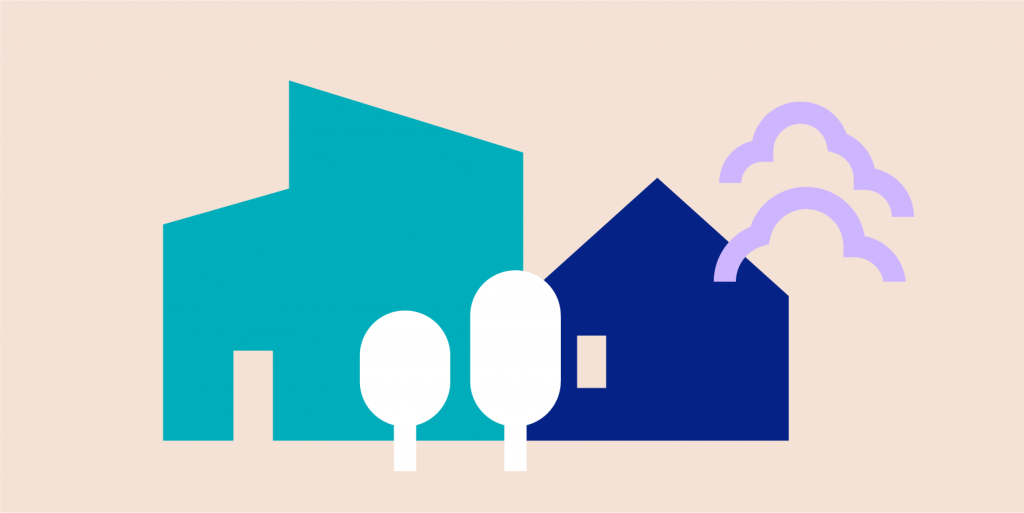Homeowners insurance is one type of policy you definitely want. In fact, you probably have to get it if you’re buying a house with a mortgage. But as much as your mortgage lender wants you to have homeowners insurance, it’s a huge benefit to you, too. Just how big a benefit depends on which policy you choose. Here’s how to pick, and how to understand all of those home insurance quotes you’ll be getting.
How to chose the best homeowner insurance for you:
-
1. Understand what homeowners insurance is.
Homeowner’s insurance is a type of coverage that covers property. Just like auto insurance covers your car or someone in it, a homeowner policy covers your home and the people and property in or around it. Homeowners insurance protects you and your mortgage lender from financial loss if disasters or accidents happen. The type of policy you have determines how much you pay and how much coverage you get.
-
2. Learn the different types of homeowners insurance coverage.
There are tons of different homeowners insurance policies. The policy is made up of line items that determine how much financial coverage you are entitled to for each type of disaster or accident. But those line items generally fall into these categories:
- Dwelling: This covers the structure itself. It helps you repair or rebuild your home in case of damage or a disaster, like a hurricane or fire.
- Liability: This helps protect you if someone sues you or files any sort of claim about something bad that happened on your property. Think dog bites, and falls from slipping on ice. This coverage can also cover you if you damage someone else’s property—like if you accidentally back your car into your neighbor’s garage door.
- Personal property: This covers the belongings inside your home, such as furniture, electronics, personal items, etc. If you have expensive or rare items in your home such as collectibles, valuable jewelry, or artwork, it is a good idea to make sure they’re on this part of your policy.
-
3. Find out your lender’s insurance requirements.
The reason your lender requires you to have homeowners insurance is to protect their investment. So it makes sense that they typically have specific requirements about how much coverage your policy must have to ensure that investment is protected in the event of a disaster. Often, this simply means that you have at least the amount of your loan in hazard insurance. But different lenders do have different rules, so be sure to know what yours requires before you start shopping.
-
4. Decide what kind of customer service you’d like.
Similar to mortgage lenders, homeowners insurance companies range from big, all-online companies, or your neighborhood insurance office. Their prices set them apart, but so does their level of service. When you have a claim, a big corporation will have an online-based process, toll-free numbers, and other forms of remote customer service available. Small local companies are more likely to be staffed by people you can get to know, call with questions, or will stop by your house if you have questions or a claim.
Either option might be better for you, depending on how you like to interact with businesses. Think about your own preferences, and when you research companies, focus on the type you prefer.
-
5. Know what special coverage you may need.
The region of the country where you live, and even where your property is located may require you to get different types of insurance. It might not make sense for someone in Phoenix to pay for flood insurance, for example, but it might be required in New Orleans. If your area is prone to certain weather disasters or your home is in a flood plain, find out what type of coverage is smart for you to have.
-
6. Have an idea of discounts you might qualify for.
Before you start researching companies, take inventory of things that may score you a discount. Some homeowners insurance firms offer discounts for security systems, back-up generators, and other things that protect your home. If your home has special features, make note of them so you can check with insurers about discounts. Many insurers also offer discounts for bundling a homeowners insurance policy with car insurance. If you have a car, plan to ask about bundling.
-
7. Research insurance companies.
Here’s the big dig. With an idea of what type of homeowners insurance you want and need, do some research on companies that cover your area. Search online and read reviews. Ask your friends and neighbors for referrals. And ask your real estate agent. They’re often familiar with the policies their other clients have chosen and have liked.
-
8. Ask for home insurance quotes.
After you’ve narrowed your list of potential insurers down to at least three, call for quotes. They’ll ask you lots of questions to give you a customized quote. Here’s what you should be prepared to share about your home:
- Insurance start date (this will be your closing day)
- Address
- Number of full-time residents
- Year the home was built
- Square footage and number of stories
- Number of detached structures
- Presence of: deadbolts, sprinkler system, smoke detectors, security systems, and fire extinguishers
- Any losses in the last five years (that you’re aware of)
- Special coverage needed for expensive items
- If you have dogs, and which breed (some breeds cost more to cover)
- Any businesses that operate in your home
- How much coverage you want
The insurer will use this information to create a custom home insurance quote for you.
-
9. Compare rates and policies.
To find the best deal for you, you’ll need to do more than just look at the number at the bottom of the home insurance quote. The price matters, but so does the coverage—particularly the deductible, which determines how much you pay out of pocket for every claim. If one company offers a far lower deductible for not much more money, they might be the best pick for you. It all depends on your needs.
Once you’ve found the best homeowners insurance for you, you’ll be ready to move on to the last stages of closing on your home. Here’s a final walk through checklist to make sure your home is all ready for you.



